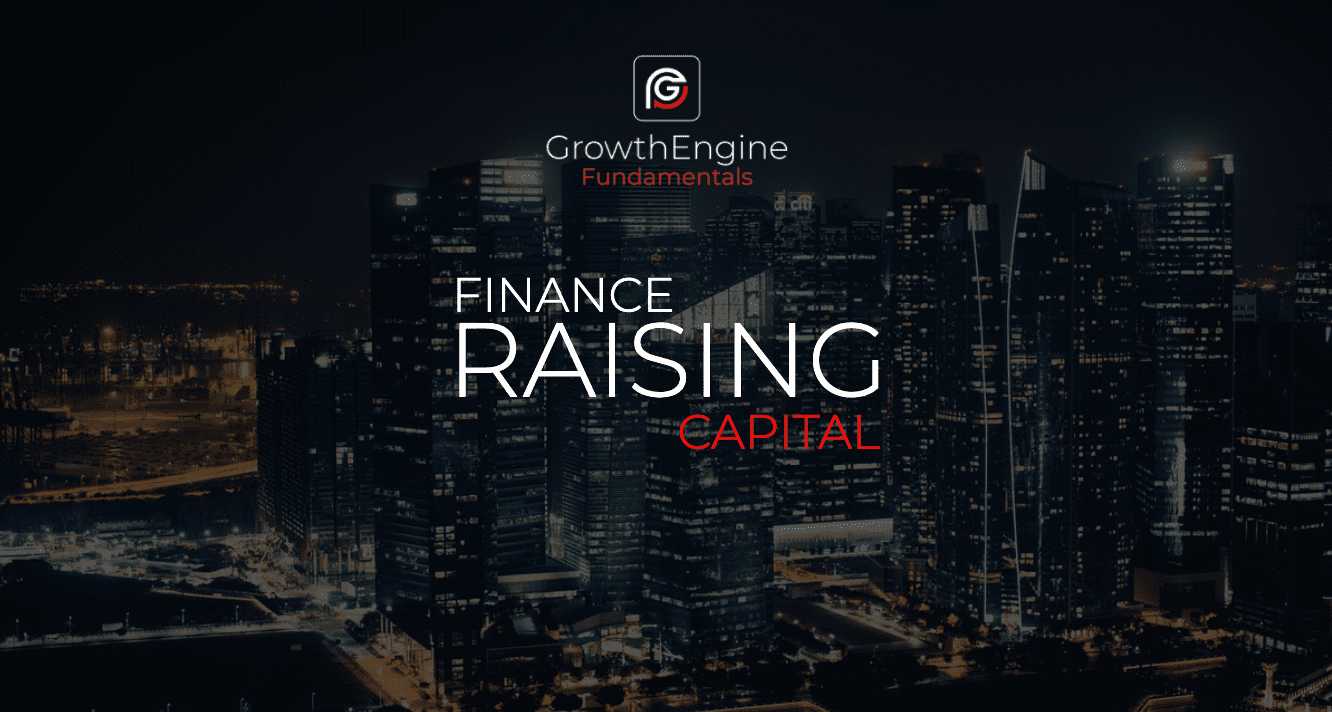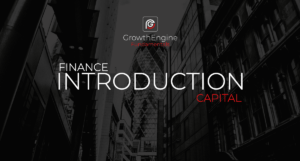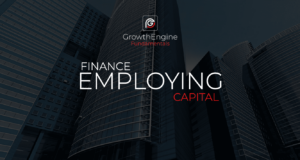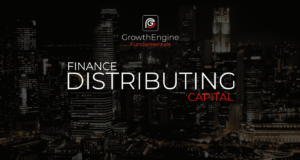
Finance Fundamentals – Raising Capital
Introduction
So what we’re trying to cover here, is about raising capital.
For businesses who are at an early stage or even established businesses who maybe want to go to the next level or even exit, these sort of points really high line and I’m just going to touch on them.
So I must stress these are not student level Bachelor degree explanations, and they are touching the outer circle.
Like with finance and any other area of business you can go down three, five, eight levels and have really granular detailed conversations.
For the purpose of these exploratory videos, this is an overview.
So when we talk about shareholders funds, we’re really talking about the capital and the equity that’s employed and the people who actually own the business.
That’s how I’m describing shareholders funds.
So, if you’re an owner-driver, you’re a one or two director team, you’re going to have some type of stakeholding or shareholding and shareholders funds.
When we talk about traditional borrowings, now that could be a private loan like a directors loan that you’ve put in, but more commonly associated with what we’d call high street working capital, loans, bank loans and overdrafts.
I haven’t got on here invoice financing or invoice discounting.
But to a degree that would also fall into traditional borrowings.
A business that’s got a need for cash, it sells goods out over a period of time.
It’s waiting to get paid because it has to provide credit terms.
So it’s either relying on cash in the bank, it’s relying on an overdraft of maybe a loan to keep the business liquid until those invoices get due for payment.
Maybe it’s accelerating those invoices through invoice financing or invoice discounting.
Venture Capital
So, that’s what we mean about traditional borrowings.
Angel investment.
So, if you’ve got a pretty unique idea, there are a lot of people, I’m one of them, I do certain angel investments into tech firms and Fintech firms and unique disrupted models.
I’m a private individual though, I’m a business person of multiple interests and there’s a lot of angel investors out there who are not associated with any banks.
They’ve been successful in business or maybe they’re just high net worth [HNW] individuals and maybe they like to experiment and put a proportion of their capital into businesses and back the early stage directors or partners.
Sometimes that seed capital before there’s even a minimum buyable product.
Other times it’s where there’s a borderline, outline minimum buyable product and they need that extra money to go to the next stage before they move into things like venture or growth capital.
So, angel investment is usually one person or a panel of people who are using their own money to sort of help a company to earlier stages.
Venture capital.
Like angel investment, it’s usually brought in at the earliest stages of a businesses lifestyle and very high risk.
It’s not uncommon that if we were using a typical example of 10 investments, the venture capital company may rely on two to hit a home run.
The other eight some would sort of break even and you would lose money.
So, venture capital is usually higher risk and deployed to really make the company grow and get to the next level.
It can be expensive but if it allows you to get your product to market, is that a 30 year or something like that where they get;
- Different Models
- Different Business
- Different Industry
But it’s not uncommon for that case.
Does it ever really end up being that?
Maybe not.
As a tombstone deal, it might be a five or eight or 10 sorts of return on the initial venture capital invested.
But again, all subjective to markets, models, how fast, what cycle the market that you’re entering, how good the management team, how strong the contracts are behind it.
But that’s venture capital and highly recommend it if you’ve got a business that can grow.
- It’s more established.
- It’s got contracts.
- It’s got products.
- It’s already generating revenue.
You really want to turbocharge it, venture capital is a great way to bring that extra in from your business infrastructure and move it forward at a rapid rate.
Growth Capital
Growth capital.
Don’t get confused between growth capital and private equity or growth capital and venture capital.
Growth capital usually comes in at a later stage to move the business through to an IPO, an initial public offering.
It’s not usually brought in right at the beginning.
It’s more at the backend.
I’m going to do as I said a deep dive on each one of these in this series later on so you might be able to check those out on the blog in more deeper dives or the YouTube channel if you head over and search Growth Engine channel or Growth Engine blog you’ll find that.
So, private equity really, are they already public or right at the end of going public and it’s a bigger deal value.
These guys are buying now, the venture capitalists, refinancing and then really getting the business to the next level.
Again we’ll do a deeper dive on that and a lot bigger deals.
Tens of millions, even billions.
Those type of people will do and usually the private equity people, may owe 90 or even 100% of the business model, whereas in growth capital especially if they’re checking through an IPO they’re going to own a big stake of that but they’re still going to be some sort of shareholder value in there from original founders or directors or venture capitalists in there.
Venture capital, I didn’t cover that earlier; they might take 10 or 20 or 30% of the business.
If you’re reading, say “hey Mike said that” but depends on the risk, it depends on the market.
It may take more, it may take less in return for the capital that they employ.
Ultimately venture and growth capital is going to have some type of stakeholder original ownership.
Private Equity

There’s no sales pitch from us.
One of our Growth Engine inbound pro’s is going to sit down and they’re really looking at three things.
Where you’re at as a business, they’re going to learn about your business, they’re going to see if we’re really a good fit and you’ve got problems or challenges or pain points or aspirations that we can help with.
The worst thing if you come off the call, you’ll have had some free solid tips.
And then if that’s something that works well we can set up some further 45-minute sort of what we call discovery calls and meetings to really dig deep with that.
And if you want to take advantage of that, literally click the let’s talk button on this page, or you can head over to any page on https://mikejmidgley.com/ for everything.
Including details about Growth Engines and what we do from there. So that wraps up our Growth Engine Fundamentals on Introduction to Finance.
As I say to wrap, if you want to shoot over to Twitter and use #AskTheAgency or #GrowthEngine ask us any questions.
We’ll get those answered for you.
Alternatively, leave us a comment below on the blog.
If you’re watching this on the YouTube channel and want to know what the blog address is, it’s https://mikejmidgley.com/
So that’s https://mikejmidgley.com/
You can head over there and as always to Get In The Game, Go Do The Hustle, Go Make It Happen and we’ll catch up with you on a Growth Engine Fundamental real soon.
If you’d like to check out the rest of the Growth Engine finance fundamentals series, select an article below









